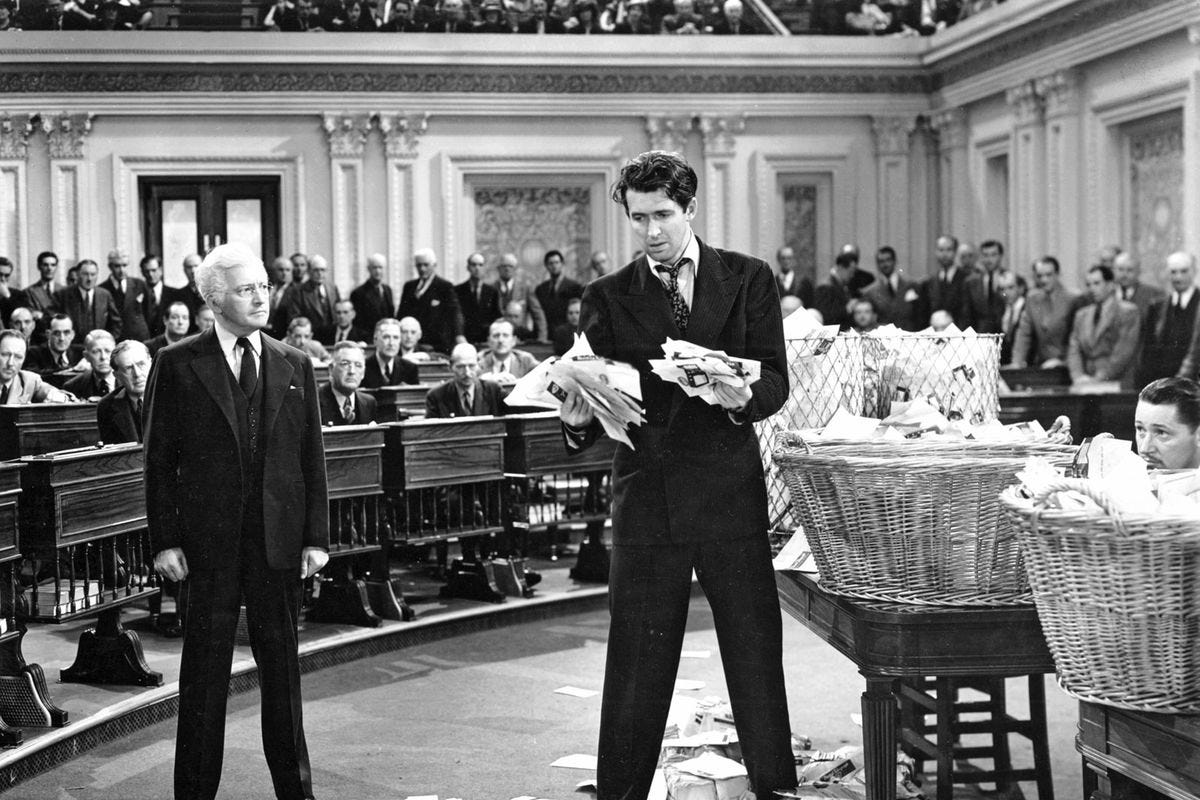A random obituary search turned up Bruce French, actor. Not a star, just a working Thespian who did a lot of TV, from Star Trek to Cheers, with a soap opera in between. He also did local theater in L.A., one of his credits being the role of Lucky in a production of Samuel Beckett’s Waiting for Godot, which starred two well-known character actors, Donald Moffat and Dana Elcar.
I actually saw that production in a little theater downtown. It was later filmed by PBS for their Theatre in America series.
The play, of course, has been the subject of much scholarly analysis. It has a simple premise. Two tramps in a dismal setting are waiting for someone named Godot to show up, which he never does.
The End.
So what’s the point? That’s what the play asks about life. Is Beckett saying we are all waiting for God to show up, and he never will? Are the tramps tragic figures? Or is there a nobility in their continuing to hope for some meaning to their existence?
Beckett was probably not a barrel of laughs at a party. Which is why he never went to parties, preferring to write in solitude. He never did interviews and when he won the Nobel Prize for Literature in 1969, he refused to travel to Stockholm to pick it up because he didn’t want to make a speech.
Today, few artists make speeches. Many, however, rant on social media or talk shows.
There should be rules for ranting.
Rule #1 would be: Know what you’re talking about. Have some facts, some logic. Don’t just bay at the moon.
Which reminds me of an incident in the life of actor John Barrymore.
When he was young and impossibly handsome Barrymore was the toast of Broadway, especially for his Hamlet.
He was also, as he was throughout his life, a souse. There were those who said Barrymore could play Shakespeare drunk better than any other actor sober.
Hmmm….
On one occasion, performing Richard III, he uttered the famous line, “A horse, a horse. My kingdom for a horse!”
In the balcony, a patron who had been noisy during the play snorted loudly.
Barrymore pointed to him. “Forget the horse and saddle yon braying ass!”
The groundlings of Shakespeare’s day would have approved.
Another time he was doing Hamlet pickled to the gills, and at one point froze.
The stage manager whispered from the wings, “Speak the speech, I pray you.”
No response.
A little louder, the manager said, “Speak the speech, I pray you!”
To which Barrymore exclaimed, “I know the line. Who the hell says it?”
Unfortunately, Barrymore’s drinking became his undoing. On film he did manage a couple of great performances, in Grand Hotel and my favorite, Twentieth Century.
My dad earned summer money as an extra in the late 1930s. He was in a lot of movies, most notably as a wounded soldier in Gone With the Wind. (Recall the train yard scene where Scarlett walks through a sea of wounded and dead soldiers. My dad is one of the wounded. The dead ones, he told me, were dummies. That’s how you saved money shooting an epic.)
Dad was also in a little comedy called Hold That Co-Ed (1938), starring Barrymore. He remembered Barrymore hanging out with the extras between takes, entertaining them with bawdy stories.
I always wondered if I could pick my dad out of that movie, but knew it would be needle in a haystack time. He’d be in a crowd scene with a bunch of others, or maybe was one of the football players.
I finally watched the film, pausing it during the various crowd scenes. Lo and behold, I found Dad:
He was also an extra in Frank Capra’s classic Mr. Smith Goes to Washington, starring James Stewart and Jean Arthur. It’s the story of a young Scout master who is chosen by a befuddled governor to take the seat of a deceased Senator. This displeases the party boss who runs the machine (including the governor), but then he determines this naive guy can be easily manipulated to do the boss’s bidding. They assign him to a cynical insider named Saunders (Arthur), to keep watch and tell him what to do. The other Senator from the state, Joseph Paine (Claude Rains), was a friend of Smith’s father, and takes the lad under his wing—though he also does what the big boss Jim Taylor (Edward Arnold) tells him to do.
With Smith restless to do something to help kids, Paine suggests he work on a bill for a kid’s camp, thinking this will keep Smith occupied.
With the help of Saunders, Smith launches his project.
But when the land parcel Smith chooses conflicts with Taylor’s plan to have it developed (and receive graft), Smith is called in by Taylor and told to play ball. Taylor tells Smith that even Senator Paine, whom Smith idolizes, takes orders from him.
Smith calls him a liar.
But when he gets up to introduce his bill, the machine (including a reluctant Paine) goes into action. It produces forged evidence that Smith owns the parcel and would profit from the project. The state newspapers run by Taylor splash the news all over.
Smith is crushed. Betrayed by Paine, he seeks to slink out of town, but Saunders finds him. She’s come to believe in him, and she offers him a crazy plan that just might work—a filibuster! That will give them time to publicize the truth, through the efforts of a little paper run by the Scouts.
But Taylor’s strong arms wreck the little printing press and steal all the issues.
All seems lost. But Smith, barely able to talk now, refuses to give in…until he faints. Which leads to a satisfying twist ending.
When Capra had the film shown in preview in Washington D.C., the reaction of the senators was brutal. How dare Capra imply there are back room deals and political bosses! That the Senate should be shown as partially corrupt, why, such an idea is preposterous! Today, we know that isn’t true. No member of Congress would ever stoop to graft, lying, or political gamesmanship.
In college I picked up Frank Capra and drove him to a speaking gig on campus, where we showed It’s a Wonderful Life.
That’s a story for another time.
Short Book Review: “This is not a novel to be tossed aside lightly. It should be thrown with great force.” — Dorothy Parker
Shorter Book Review: “The covers of this book are too far apart.” — Ambrose Bierce








What a delightful Prufrockian career your father had!
"No! I am not Prince Hamlet, nor was meant to be;
Am an attendant lord, one that will do
To swell a progress, start a scene or two"
Another excellent post. I can see why Samuel Beckett wasn't a laugh a minute.
"There should be rules for ranting." Reminds me of a favorite proverb.
"A fool takes no pleasure in understanding, but only in expressing his opinion." —Proverbs 18:2